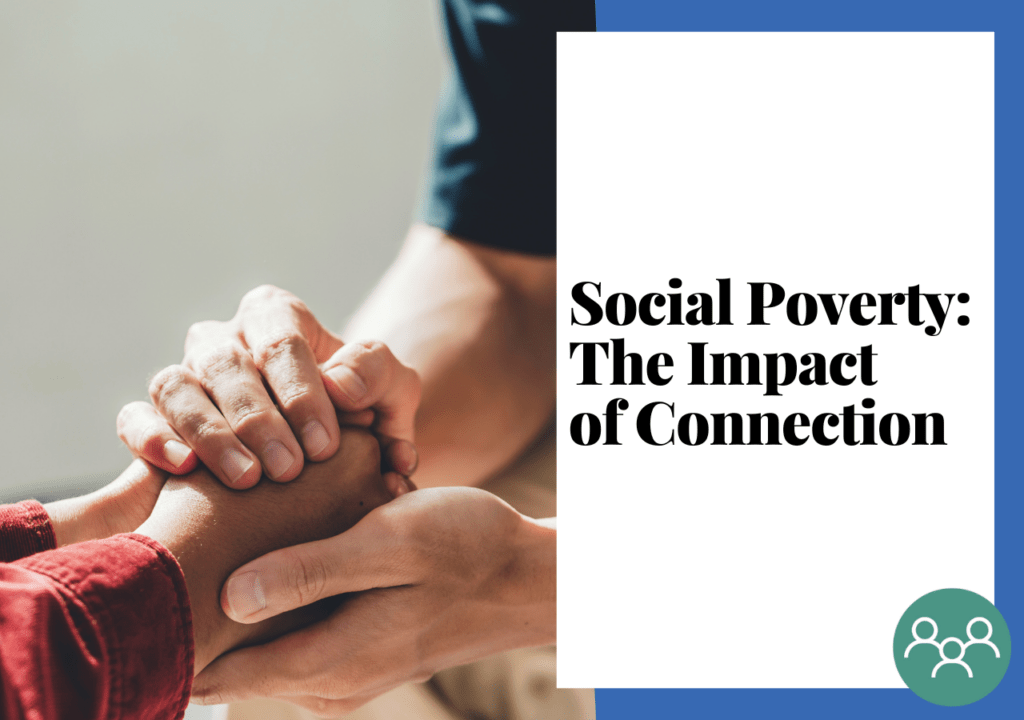Social Poverty: The Impact of Connection
This training was presented on January 11, 2023
*Training certificates are only available following live trainings or completion of self-paced courses. A certificate will not be provided for review of these materials.
This training was presented in collaboration with our partner project, the California Evidence-Based Clearinghouse for Child Welfare (CEBC).


This training will introduce participants to the concept of social poverty, which is experienced when someone feels they do not have adequate social supports in their lives—people who they can trust to be there for them socially and emotionally. We will explore how social poverty may motivate individuals’ choices, including around participation in programs and services. We will reflect on how providers can structure service programs in consideration of the role of social poverty in the lives of participants/clients.
Learners will:
- Understand what social poverty is.
- Be able to explain how social service providers can take into account social poverty in structuring their programming.
Who should attend: All staff of family resource center (FRCs), child abuse prevention councils (CAPCs), and other child and family-serving organizations.
IMPORTANT TRAINING INFORMATION:
- This is a webinar-style training. This means that you will not be on camera and will not be able to see other learners. This training will not include breakout rooms. Opportunities to interact with the presenter(s) and other participants will be included.
- This training will be recorded. The recording will be available to registered learners within 2 days of the training.
- By registering for a CalTrin training, you consent to be added to the CalTrin mailing list.
TRAINING PRE-WORK:
- Read: More and more college students are moving in with senior citizens and they’re both enjoying mutual benefits (Upworthy)
- Read: Human-Centered Design and Connectedness in Communities (Samuel Centre for Social Connectedness)
- Read: How Local Leaders Can Create Socially Connected Communities (Robert Wood Johnson Foundation)
TRAINING MATERIALS & RESOURCES:
- Recording
- Note-taking slides (3/page)
- More and more college students are moving in with senior citizens and they’re both enjoying mutual benefits (Upworthy)
- Human-Centered Design and Connectedness in Communities (Samuel Centre for Social Connectedness)
- How Local Leaders Can Create Socially Connected Communities (Robert Wood Johnson Foundation)
- It’s Not Like I’m Poor: How Working Families Make Ends Meet in a Post-Welfare World by Sarah Halpern-Meekin, Kathryn Edin, Laura Tach, and Jennifer Sykes
- Social Poverty: Low-Income Parents and the Struggle for Family and Community Ties by Sarah Halpern-Meekin
MEET THE SPEAKER
Sarah Halpern-Meekin is a professor in the School of Human Ecology and in the La Follette School of Public Affairs at the University of Wisconsin-Madison. She does research on family relationships and family finances, and on the role of public policy in intervening in those areas. Her current studies focus on churning (on-again/off-again) relationships, on the perspectives of men who are out of the formal labor force, and on the experiences of mothers with young children receiving a monthly unconditional cash transfer. She has published books on the Earned Income Tax Credit (It’s Not Like I’m Poor: How Working Families Make Ends Meet in a Post-Welfare World) and on government-funded relationship education programs (Social Poverty: Low-Income Parents and the Struggle for Family and Community Ties).

Sarah Halpern-Meekin, PhD
Professor of Public Affairs and Human Development and Family Studies
University of Wisconsin
